The world changes – and so do careers.
25 years In 25 years’ time, it’s thought that half of today’s professions will have disappeared. This means that we’re all travelling into the unknown. But it will be an adventure of discovery, full of unexpected, stimulating and exciting challenges. Of course, technology will be the key to this transformation, but it will still be a secondary player. The real protagonists will be people and they will need the right skills to act effectively.

What is the skills gap?
The skills gap is all about the difference between the skills possessed by those who are looking for employment and the skills that employers actually require. This gap is getting bigger as the technological progress gathers pace. It’s a challenge which is present right across the world and it has direct effects on the economy: it can increase unemployment and reduce business productivity.
How can we close this gap?
As an educational institution, CEU UCH is part of the solution. This University has pioneered the targeted development and certification of specific transferable skills and competences, and we can ensure these skills are easily recognizable by employers.

We can certify your competencies using Open Badge technology
When selecting potential employees, business associates or investment partners, decision-makers need to know whether the people under consideration have the right skills and competencies. Having a degree is the first filter, but after that, the specific competencies that you possess can make you stand out and even make you the ideal candidate.
To streamline the selection process, recruitment portals like LinkedIn enable employers to search for candidates by competencies.
To improve the employability of our graduates, CEU Universities are leading an innovative change to bachelor’s degree programmes, by adding microcredentials to them. These are the qualifications of the future, enabling students to display the specific skills they possess on social networks in an effective way.
Employers are looking for more than a degree
Employers are certainly looking for graduates, but graduates who also possess specific skills and competencies stand out from the rest. That’s why it's so important for candidates to display the competencies they possess.
Over the course of their degree, CEU students can gain a series of personal and professional skills which are highly valued by employers. Microcredentials allow the University to certify that its graduates possess these skills – and enable employers to easily verify this.

What is a microcredential?
- A microcredential is the digital certification of a particular learning outcome, skill, or competency.
- It provides detailed and valuable information about what the holder is capable of in a professional environment, ensuring that those who have microcredentials stand out more to employers.
- A microcredential generates trust, as employers can see how the person has acquired the corresponding skill or competency. At CEU, we issue microcredentials in the form of digital badges, meaning that they are easy to share and verify.
What CEU microcredentials are there?
CEU microcredentials form part of an ecosystem which covers all the competencies which you can acquire during your time at the University.
The CEU Microcredential Ecosystem has been audited and is subject to a process of continuous improvement via the Procedure for the Design, Creation and Evaluation of the CEU Credential Ecosystem Using Badges and Learning Pathways, part of the University's quality assurance system.
The ecosystem includes:
- 21st Century Skills, divided into six areas
- Learning pathways leading to microcredentials and integrated into your degree programme
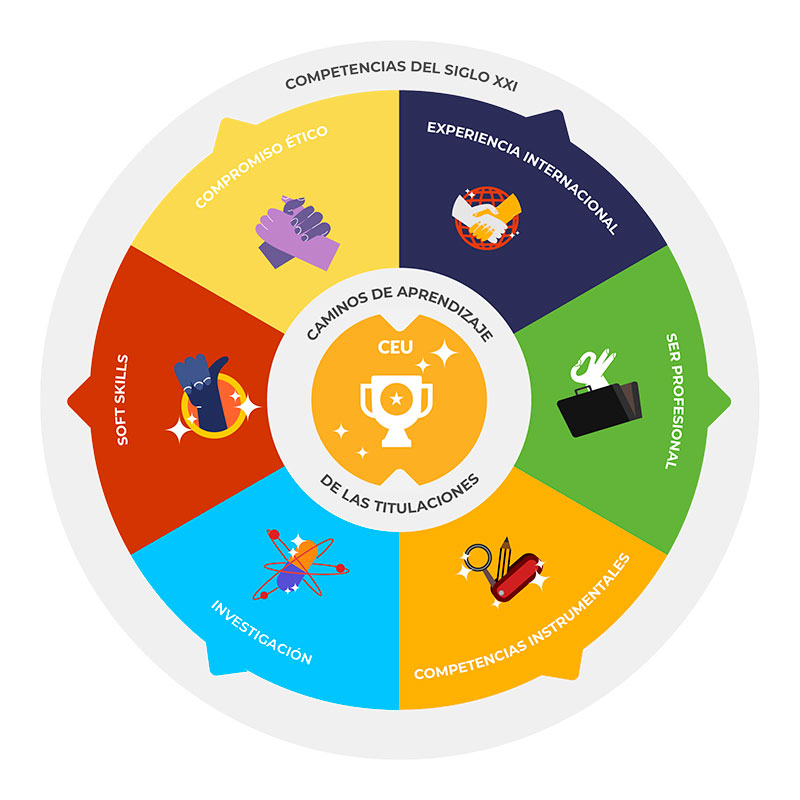
21st Century Skills
CEU UCH students can find all the information on the badges and microcredentials available for 2023-24 on the intranet.
Ethical commitment
Competencies concerning social awareness, civic responsibility and sensitivity to the environment – developed at the University and certified by it.
Research
These competencies concern the application of the scientific method in a specific area, contributing to the progress of society.
Instrumental competencies
These are the value-added competencies concerning the use of information management resources, digital skills and the ability to speak foreign languages.
Internationalization
These are the competencies you will need to operate effectively in today’s globalized workplace.
Soft Skills
These are personal skills which go beyond mere knowledge of information: they are what differentiate a top professional from the rest.
Being professional
With these competencies, professionals can operate in a range of different organizational settings and stand out in the job market.
Learning Pathways
Our learning pathways consist of a gradual learning journey, in which students can achieve milestones on the way to attaining the final competency. When a learning pathway is completed, students are awarded a microcredential is issued which can be shared on social media demonstrating that they possess a valuable competency.
What are the benefits?
- Our learning pathways enable learning experiences to be personalized.
- They provide motivation to keep on learning.
- They enhance performance as the standard of work required increases as the pathway progresses.
- They encourage learner autonomy and self-regulated learning.
- By completing a learning pathway, students enhance their skills profile and become more competitive in the job market.
There are degree-specific learning pathways at CEU - what form do they take?
- These are designed by the staff responsible for each degree.
- These pathways can include: 21st Century Skills badges, degree courses, learning activities which form part of a course, activities with external partners, awards, etc.
Interested in a specific pathway? Visit the page for the degree in question
Example of a learning pathway: Digital Literacy Skills for Educators, for the Bachelor's Degrees in Primary Education and Early Years Education at CEU UCH
How can students get CEU microcredentials?
- By taking part in some of the many different learning experiences which are possible at the University.
- By following a degree-specific learning pathway
How are they issued?
- The University issues microcredentials in the form of digital badges using Open Badge 3.0 technology, from the CEU account on the Canvas Credentials platform.
How can students display their microcredentials?
- CEU microcredentials and badges can be easily shared and displayed on LinkedIn, personal website, CV, portfolios, or any digital platform. To do this, students must register on the Canvas Credentials platform.
If you are a student, check out the information on the intranet about how to get microcredentials.
Peer issued badges: issued by students to students
What are peer issued Badges?
- These badges are issued by students to other students, in recognition of their learning.
Why have peer issued badges?
- They encourage student participation and involvement in organizing activities.
- They provide a visible reward for hard work.
- They provide a different and stimulating kind of learning experience.
How can I get them?
- Join a student club to get peer-issued badges.
- The Student Clubs determine the earning criteria for the award of these badges on an annual basis.
- You can find a list of student clubs that issue badges on the intranet.
The development of the CEU Microcredentials Ecosystem: a quest to improve our students’ employability
We’ve been working on raising the profile of the skills that CEU students acquire during their time at the University since 2015. We started with what was called the Certificate of Competencies: students received this in PDF format when they graduated. In 2019, we transformed this certificate using Open Badge technology, via the world’s leading badge-issuing platform, Badgr.com. Since then, the CEU Microcredential Ecosystem has undergone exponential growth. In 2022, we took another leap forward with the release of the Open Badge 3.0 standard and the growing awareness of the concept of microcredentials across the world.
Click on the different years to see the milestones of the ecosystem's development.
- {{hito.year}}
- Launch of the “Certificate of Competencies” (PDF given to graduates recording the competencies acquired over the course of their degree).
What is the Open Badges 3.0 standard and why does it matter?
Welcome to the new generation of digital badges.
In 2022, the CEU Universities began using the Open Badge 3.0 standard. This means that our students can have their competencies digitally certified to the highest standard of security and can store their badges in digital wallets. The enhanced metadata enable the badges to be used in a range of types of certification, and are linked to machine-readable skills libraries, facilitating their discovery by search algorithms.
We are currently using the Canvas Credentials platform to issue our badges.
Get the latest microcredentials news on our blog
Work Academy: PwC and CEU are re-writing the rules for in-service training
Imagine you've been successful in a recruitment process at one of the biggest professional services companies in the world. New job – it's time to celebrate. Maybe you go out with a few friends, or you take your family out to dinner. But does this mean your learning journey is over? Absolutely not! In fact, the learning process has only just begun – in fact, it’s about to get even more intense.
What is Work Academy?

How can you learn a profession? How do you learn to become a consultant, an auditor, or a tax expert? You have a degree, sure, but how can you keep on learning in the workplace and develop your career?
Work Academy aims to provide the answer. This pioneering project in Europe is the product of a collaboration between the leading professional services company PwC and CEU. This innovative scheme enables professionals to certify what they learn while doing their everyday jobs: PwC's teams of professionals can now obtain postgraduate qualifications from the CEU Cardenal Herrera University while working. This forward-looking initiative is a new way of doing things and a recognition of the fact that when we work, we also learn. This is why PwC has teamed up with CEU to offer its professionals a structured framework within which to develop and improve their skills. Right now, PwC is the only company doing this, and CEU is essential to its strategy.
The skills and competencies the professionals develop are certified with microcredentials, the qualifications of tomorrow, using cutting-edge Open Badges technology. In this way, the company's employees can receive badges to certify the training, experience and skills they acquire. These badges can be stacked into two university diplomas and ultimately a lifelong learning master's degree awarded by the CEU Cardenal Herrera University.
The Work Academy initiative will see round 4500 PwC staff gain university qualifications in this way over the next four years, enhancing their career prospects.
How does it work?
Hard work and outstanding professionalism is essential, of course, but PwC’s professionals also benefit from the fact that a certification structure has been put in place and time is set aside during the working day for training. They can gain a master's degree in 18 different specialist areas, such as financial and non-financial auditing, governance, risk, sustainability and compliance, business consulting, and strategic consulting.
Key characteristics
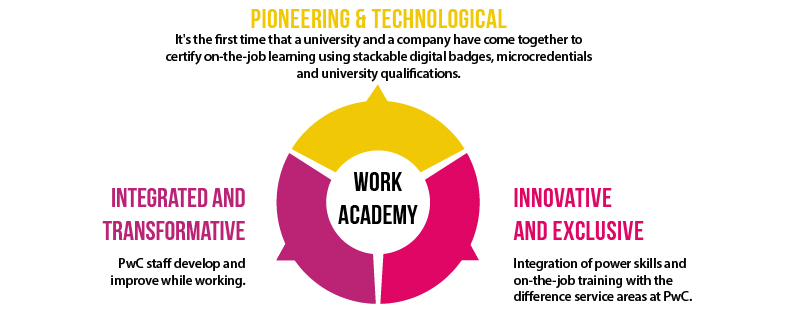
At PwC and CEU, what does it mean to lead the way?
At PwC, leading the way means doing things that others have not done yet.
At CEU, leading the way means daring to do what others dare not.
The desire to lead the way is what has brought PwC and CEU together. We share a vision of how professionals can develop their skills today to become tomorrow's leaders. Change is inevitable, yet many people are scared of it. Not us.
The vision we share means that PwC can now call on the first staff development system using stackable microcredentials which can lead to more traditional university qualifications. The desire to innovate in this way shows how highly PwC values the professionals who deliver its services.
The vision we share means that CEU is now the first university to certify professional staff training at a leading multinational company such as PwC.
More information Press release|
|
Compromiso ético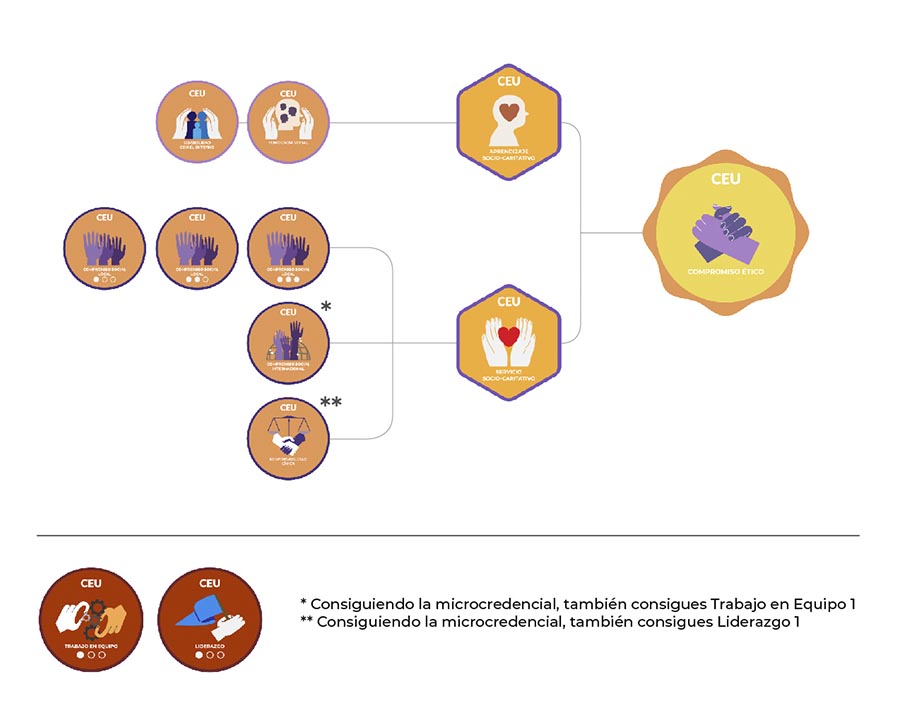
|
Investigación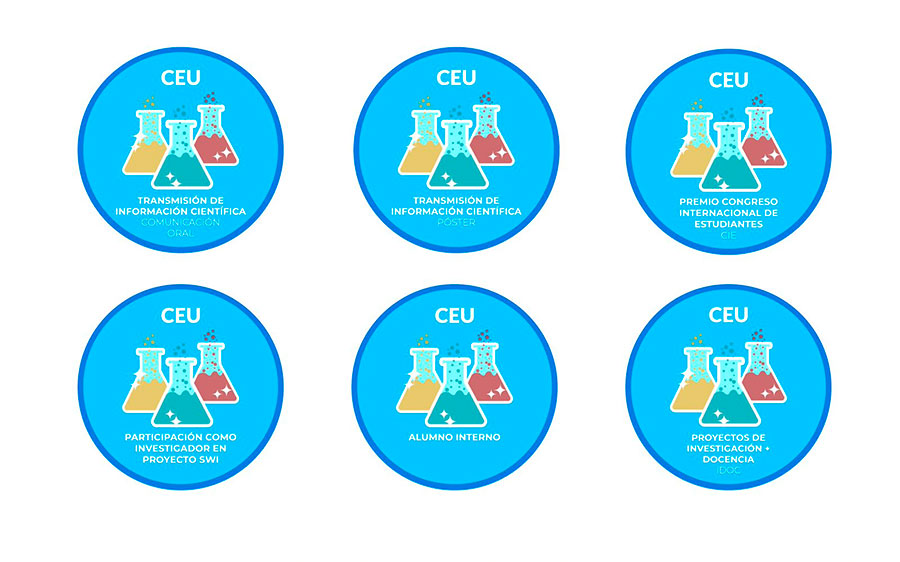
|
Competencias instrumentalesCompetencias idiomáticas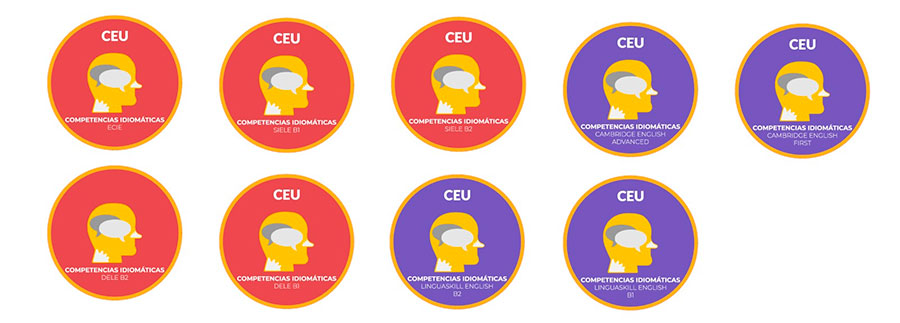
Competencias informacionales
|
Internacionalización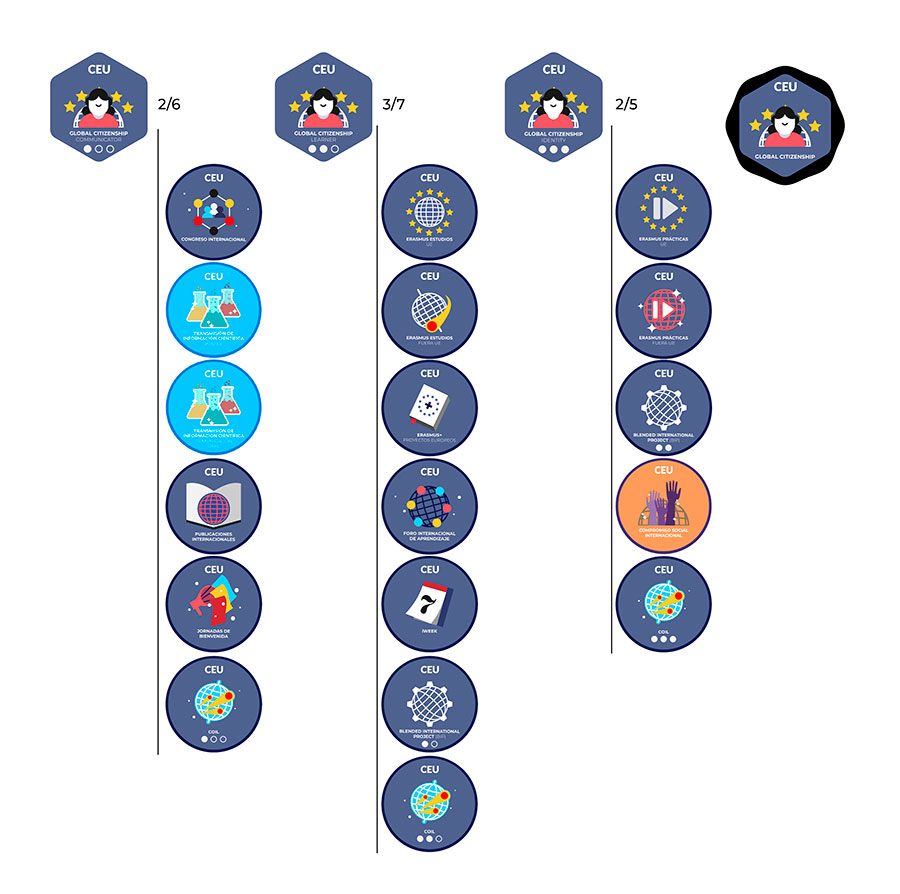
|
Soft Skills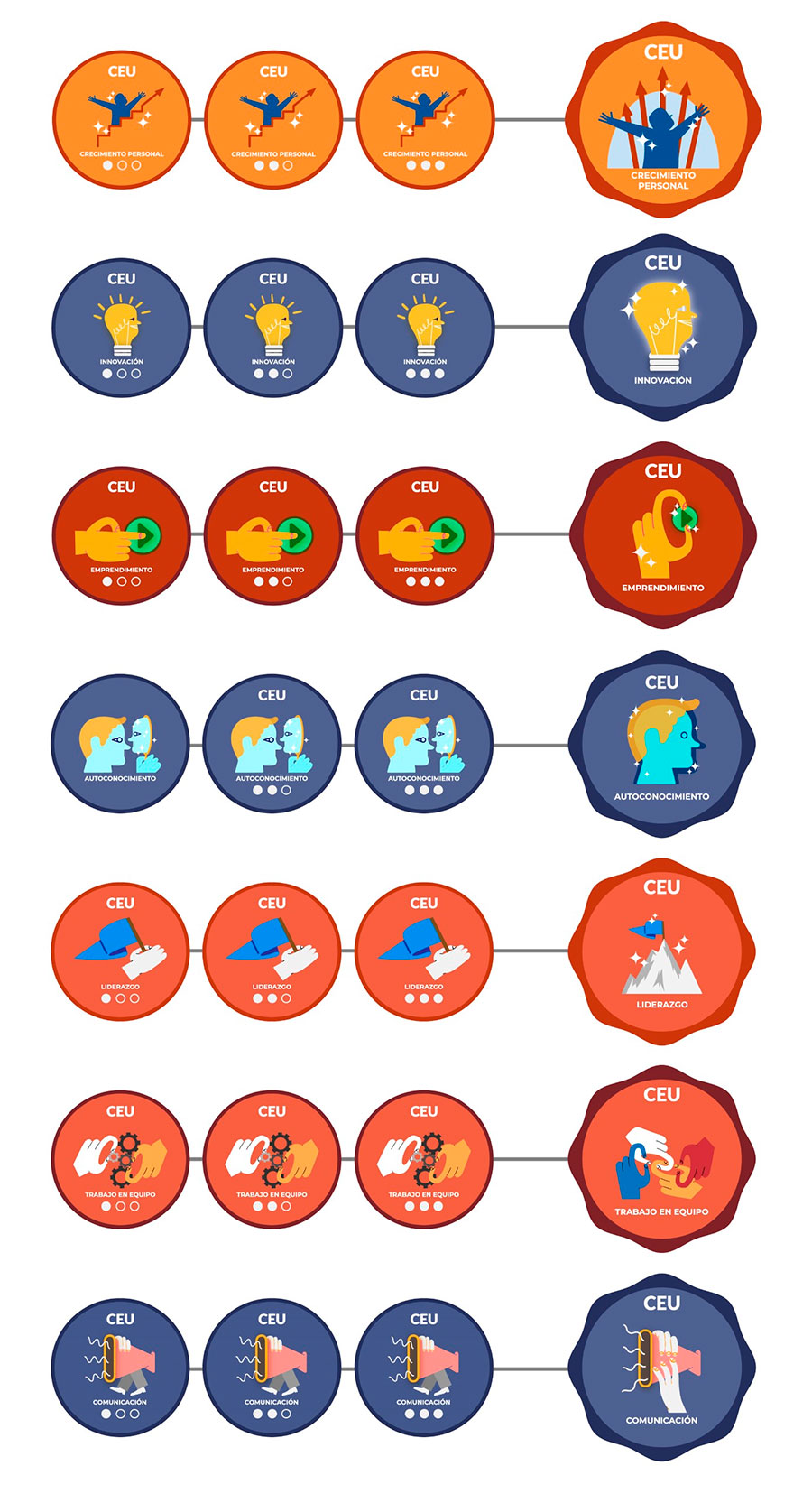
|
Ser ProfesionalCompetencias de empleabilidad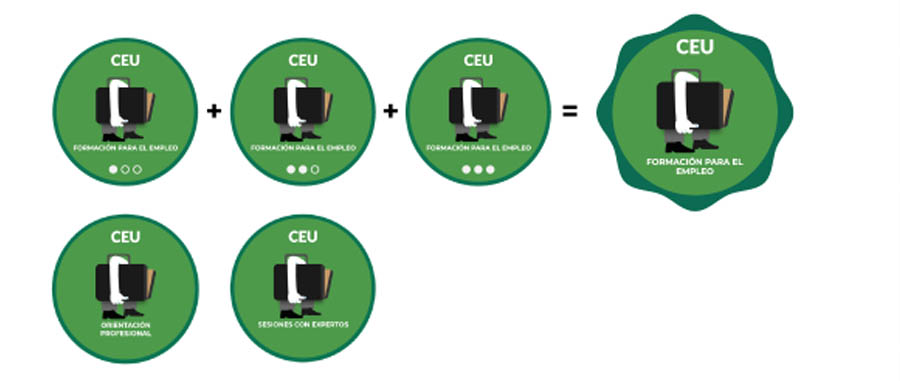
Competencias de sociabilización laboral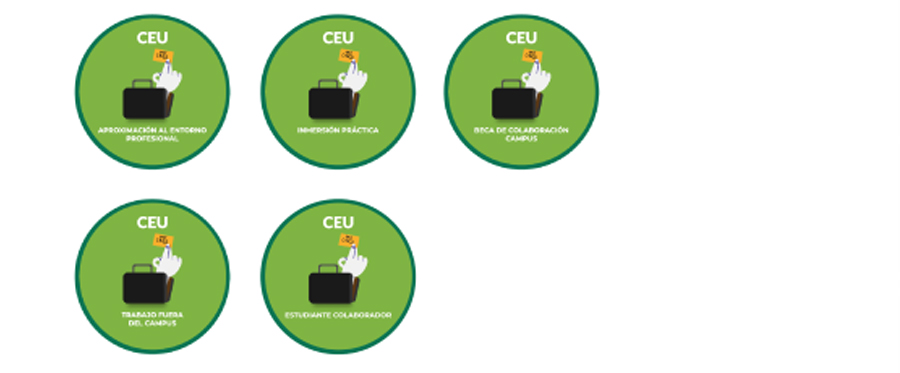
|





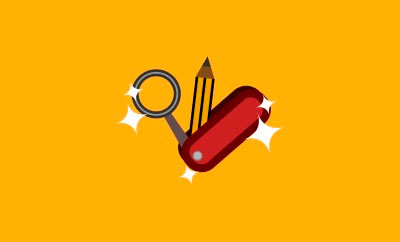



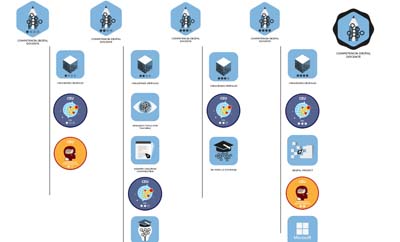



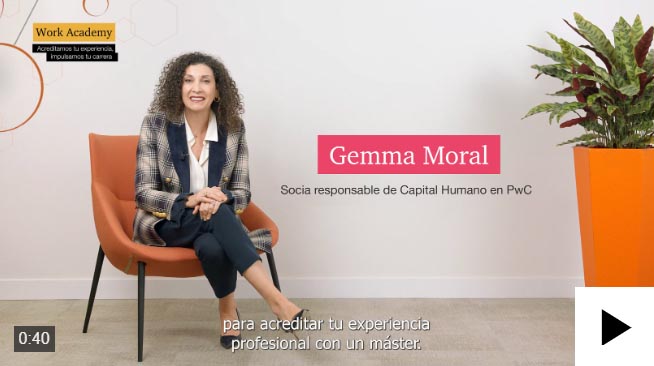
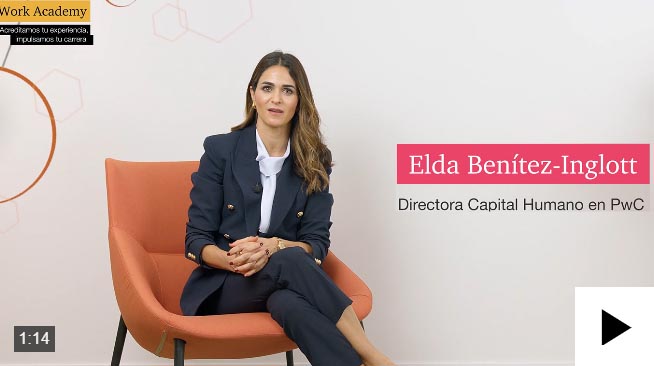
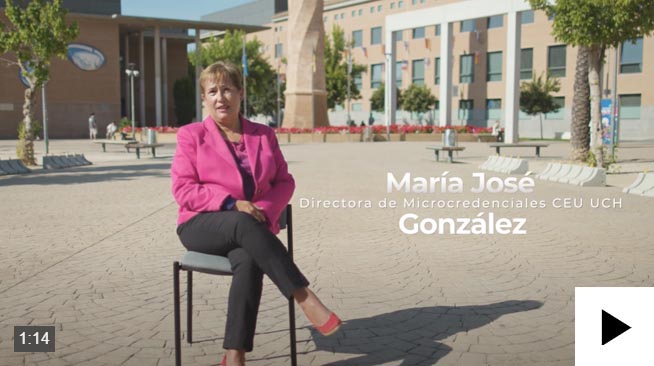
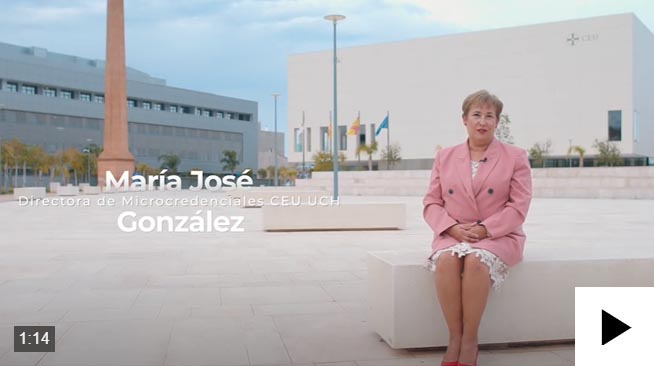
María Rosario García Bellido Vice-Dean for Education
"The Pathways enable us to strategically plan and design the skill development that our students will need for their careers. The fact that we can certify these skills is really the key, as it can give our students the edge in an ever more competitive job market."